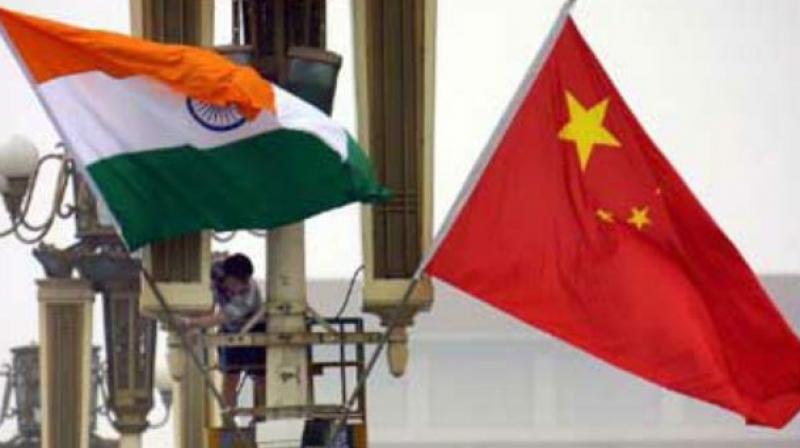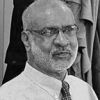Why unlearnt lessons of 1962 still haunt us
Today India is a rising power, but a somewhat less surefooted one than China, which is now an economic and military superpower.

I was in high school in 1962, but the events of September, October and November are still etched in my mind. They still tell me of a collective national leadership which can misjudge a situation and propel the nation to consequences that will forever haunt it. It’s not just the government, but the Opposition too that must be held guilty. It forced an unwilling government into a war that it was not prepared for, with an enemy it completely misjudged. The defeat has set us on a course for this century that may be difficult to deviate from, and that which will largely determine the geopolitics, if not of the world, but Asia for sure. Today India is a rising power, but a somewhat less surefooted one than China, which is now an economic and military superpower. China has described its rise as a peaceful one. Will it let India’s rise also be a peaceful one?
In 1962, the Chinese economy was smaller than India’s, and its per capita income too was smaller. That holds a lesson for us. Economic power is not automatically military power. For that, the nation’s leadership must have clarity of vision, united determination and in which national concerns must not become the tools of partisan politics. As Allama Iqbal exhorted us: “Yaqeen makham, amal paiham, mohabbat fateh-e-alam/ Jehad-e-zindagani mein hai yeh mardon ke shamsherein.”
On September 8, 1962, the Chinese People’s Liberation Army surrounded a small Indian Army post in Tsenjang on the northern side of the Namka Chu stream, just below the disputed Thagla ridge at the India-Bhutan-Tibet trijunction. The Indian post came to be established as a consequence of the asinine “forward policy” which was adopted by the Indian government after the Sino-Indian border dispute began hotting up, particularly after the flight of the Dalai Lama to India in 1959.
The Chinese couldn’t have chosen a better place than Tsenjang to precipitate a military conflict with India. For a start, Tsenjang was north of the de facto border, which at that point ran midstream of the Namka Chu. The PLA also commanded the high ground there. By surrounding Tsenjang the Chinese had now flung the gauntlet at India. India walked right into it, chin extended.
On September 10, then defence minister V.K. Krishna Menon conveyed his decision that the matter must be settled on the field, overruling the vehement objections of the Army Chief, Gen. P.N. Thapar. Gen. Thapar warned that the Chinese had deployed in strength and even larger numbers were concentrated at nearby, very clearly determined to attack in strength if need be. He warned that fighting would break out all across the border and that there would be grave repercussions.
Bur orders are orders, and consequently the Eastern Command ordered Brig. J.P. Dalvi, commander of 7 Brigade, to “move forward within 48 hours and deal with the Chinese investing Dhola”. Having imposed this order on a reluctant Army, Krishna Menon left for New York on September 18, but not before slyly conveying to the press that the Indian Army had been ordered to evict the Chinese from Indian territory. Prime Minister Jawaharlal Nehru too was overseas, having left India on September 7, only to return on September 30.
The Indian Army was under pressure but Gen. Thapar was still not prepared to bow to sheer stupidity. On September 22, at a meeting presided over by deputy minister K. Raghuramiah, Gen. Thapar once again warned the government of the possibility of grave repercussions and now demanded written orders. He received the following order, signed by H.C. Sarin, then a mere joint secretary in the defence ministry: “The decision throughout has been as discussed at previous meetings, that the Army should prepare and throw out the Chinese as soon as possible”.
Under the previous Army Chief, Gen. K.S. Thimayya, the Indian Army had developed the habit of winking at the government’s impossible demands often impelled by its fanciful public posturing. The posturing itself was an outcome of the trenchant attacks on the government in Parliament by a galaxy of MPs. One particular MP, the young Atal Behari Vajpayee, was particularly eloquent in his quest to put Jawaharlal Nehru on the defensive. He and others like Ram Manohar Lohia, Acharya Kripalani and Minoo Masani would frequently thunder that every inch of sacred Indian territory must be freed from the Chinese, and charge the government with a grave dereliction of its duties.
Prime Minister Nehru finally obliged, by initiating the stupid “forward policy” and resorting to the use of more extravagant language to signal his own determination to the Indian public. A general summed up this policy succinctly by writing: “We would build a post here and they would build one there, and it became a bit of a game, to get there first!”
Jawaharlal Nehru returned on September 30 and was furious that the Chinese were still not thrown out from the Thagla ridge. He was tired of the Indian Army’s refrain of grave repercussions. He shouted at the hapless Army Chief: “I don’t care if the Chinese came as far as Delhi, they have to be driven out of Thagla.” Unlike, Gen. Thimayya, Gen. Thapar was possibly a more obedient soldier, probably even less understanding of the government’s compulsions and hence took its orders far more literally and seriously than it deserved.
Not only were the Chinese better placed in terms of terrain, men and material, the Indian troops were woefully ill-equipped, ill-clothed and had to be supplied by mule trains or airdrops. They were acutely short of ammunition. The objective of evicting the Chinese from Thagla was of no strategic or tactical consequence. The nation clearly needed a greater reason to precipitate an unequal war.
Unfortunately, however, governmental decision-making is still characterised by ad-hocism and a tendency to grandstand. It was this tendency that cost us so many lives in Kargil when we went into quick battle mostly to assuage public opinion and for domestic political gain, without thinking through the tactics. We saw it again during the Doklam crisis, when the Opposition, kept out of the information loop, kept hammering away at the government, and with the so-called “surgical strikes” which this government seems to have fashioned to score points with its patriotism pirouettes. It is only the unquestioning soldiers of the Indian Army who will still charge like the Light Brigade! Never asking the reason why!
But does anyone of consequence in India, including in the Indian Army, commiserate these days over the futile and unnecessary loss of over 7,000 lives, so much of humiliation as a consequence of so much of foolishness by men holding high offices? In 1962, lyricist Pradeep wrote the now famous song whose first line runs “Aye mere watan ke logon, zara aankh mey bhar lo paani, wo shaheed hue hain unki, zara yaad karo qurbani.” When Lata Mangeshkar sang this in to an audience which included Jawaharlal Nehru, it is said that tears flowed from every pair of eyes. The song still has that magical quality, but few now seem to know what train of events caused those poignant words to be written and what emotions put that enduring magic in Lata’s voice.
If our politicians can’t find the time or the attention span to read some of the numerous books and articles written on the subject, they should at least listen to the song and shed a tear for our fallen warriors. We owe them that much for they have, as Kaifi Azmi had written in 1964: “Kar chale hum fida jaan aur tan sathiyon, ab tumhare hawale watan sathiyon!”

